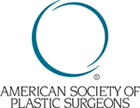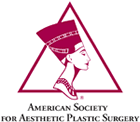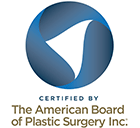
 |
    |
Scar RevisionScars, whether those that are unintentional following accidents or those that occur following a planned surgery, heal in many different ways. Many factors affect the way your body heals, and each person heals differently. Some of the factors that affect the type of scar your body forms include:
Scars cannot be removed completely, but they can often be improved considerably. If you are bothered by a scar because of its appearance, you may be a good candidate for scar revision. This page will give you a basic understanding of the procedure and the results you can expect. However, Dr. Revis feels it is extremely important to individualize treatment to your specific circumstances and goals; therefore, it is recommended that you visit our office for a complimentary consultation. You are also invited to email Dr. Revis with your questions, or we can mail you more detailed information regarding the procedure. The ConsultationDuring your initial consultation, Dr. Revis will inquire about your medical history, prior procedures, medications, allergies, and your motivations for seeking plastic surgery. It is very important that you be thorough when providing your medical history, as this information helps to prevent complications during your care. When asked about medications, be sure to include any vitamin or herbal preparations, as these can affect your blood pressure and clotting ability. Honesty regarding your use of tobacco and alcohol is also very important, as these may have a profound impact on your recovery period and your ability to heal following your procedure. After reviewing your medical history, Dr. Revis will discuss your concerns, priorities and motivations for pursuing plastic surgery, as well as your fears. After examining you, Dr. Revis will be able to offer advice and options to help you achieve the appearance you desire. He will explain the advantages and disadvantages of the different options you have before you. At the completion of your consultation, our Patient Coordinator will give you a written estimate of the cost of your procedure. At this time, you will also have the option to schedule your procedure if you so choose. The decision to undergo surgery is a very important one, and the final decision should be given very careful consideration. Dr. Revis realizes the importance of this decision, and at no time will you be pressured to make a decision. You are also encouraged to bring your spouse, significant other, family member, or a friend to your consultation. Where Your Procedure Will Be PerformedIf your scar is small, the procedure can often be performed in Dr. Revis' office. If the scar is large, the procedure must be performed in the operating room. More extensive scar revisions are usually performed at Broward General Medical Center or Imperial Point Medical Center (fully accredited hospitals) because the staff of these facilities are very experienced in the care of plastic surgery patients in general and specifically in the care of Dr. Revis' patients. Types of AnesthesiaAnesthesia is an essential part of any surgical procedure and must be performed safely. General anesthesia is the deepest form of anesthesia. You are asleep, feel no pain, and will not remember the procedure. This is rarely needed for scar revision, unless the patient is a young child. Deep intravenous sedation, also called twilight sleep or IV sedation, is a combination of local anesthetic administered at the surgical site by Dr. Revis and intravenous sedation administered by the anesthesiologist. You breathe for yourself, but you are in a deep sleep throughout the procedure. You should feel no pain, and you should not remember the procedure. This type of anesthesia is preferred for very large scars or for those in very sensitive areas, such as around the eyes. Scar revision is most often performed with the use of local anesthetic, with or without oral sedation. You will be awake during the procedure and will remember the procedure, but you should feel no pain because of the use of local anesthetics. Dr. Revis will discuss these options with you more thoroughly at the time of your consultation, and please ask him about anything you do not understand. Details of the ProcedureScar revision usually takes one two hours to perform, depending on the size and location of the scar. After you are properly anesthetized, Dr. Revis will excise the scar and reconstruct the area. Afterwards, the incisions are carefully closed to minimize your scar. A sterile dressing is then applied to the incision. Products to Help You HealSilagen Made with 100% pure medical grade silicone, Silagen 100% Pure Silicone Gel for Scars is a clear, fast drying gel that will help flatten, soften and smooth scars. It also helps reduce redness, discoloration, itching, and pain. These products are available for purchase in our office. Please ask us about these products and others if you have any further questions about whether or not these would be beneficial for you during your healing period. After Your ProcedureScar revision is an outpatient procedure. After recovering for approximately one hour, you will be able to go home in the company of a friend or family member. You should plan to take it easy following your surgery. No strenuous activities, heavy lifting (over 20 pounds), aerobic exercises, swimming, contact sports, tennis, or golf should be planned for the first several weeks. As Dr. Revis monitors your recovery, he will advise you when it is safe to resume specific activities. Depending on the location of your scar revision, your sutures will be removed between four and ten days following surgery. The Results You Can ExpectYou will notice an improvement in your scar immediately, but the final results can take much longer to become apparent. Scars continue to mature and improve for up to two years following surgery. During this time Dr. Revis will instruct you as to the proper care of your scar so as to minimize its appearance. Scars are initially very sensitive to sunlight and can tan darker than the surrounding skin, so it is important to wear sunscreen over your new scar for the first six to nine months. There are also other techniques and topical medications that can help minimize scarring that Dr. Revis will discuss with you following your surgery.
Please call (954) 630-2009 for further information or to schedule your appointment for a complimentary consultation. Email: DrDonRevis@hotmail.com
|
|
|
Copyright 2022 South Florida Plastic Surgery Associates |